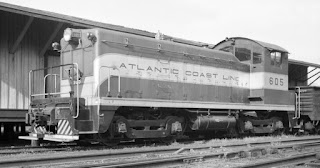EMD NW2 Phase Guide and Builder List

Atlantic Coast Line NW2 605, location, date and photographer unknown. Scanned from a 2 1/4 x 3 1/4 positive owned by Digital Rail Artist. This is a Phase 1a unit built in May, 1942. EMD sold 1,145 of their 1,000 horsepower switchers, built between February, 1939 and December, 1949, when it was replaced by the 1,200 horsepower SW7 . This is a 40-page detailed look at the phases and builder list. Revised to March 20, 2022 at 8:41 a.m., Mountain Standard Time.





